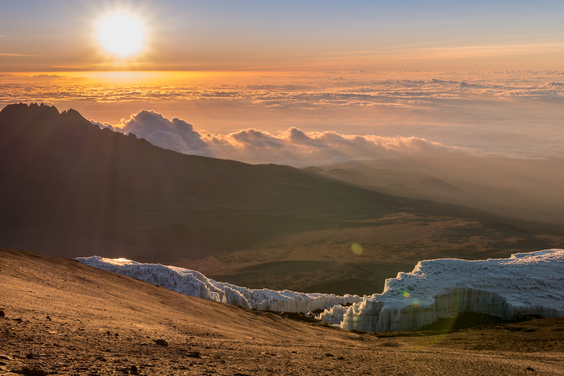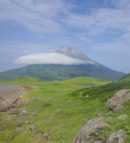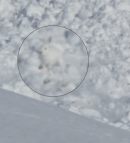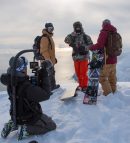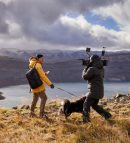ABOUT KILIMANJARO AND OTHER PINNACLES

Together with Alexandra Semeshkina, we managed to ride heliski in Chile, ride a jeep along the highlands of Bolivia and at the end of 2016 we climbed the Kilimanjaro (5895)! Sasha is a charming successful girl, mother of two children, the founder of the elegant clothing brand Jersey, an athlete and a real beauty. Due to her perseverance she has achieved considerable heights in life, and now she aims to conquer the highest and most picturesque peaks of our planet. In this interview, Sasha talks about the delights and difficulties of her new hobby.

What was your path to climbing? How did this hobby begin?
Alexandra: To be honest, with “Everest” movie! The watching fell on the Great Lent, and my husband Kirill it every year. We were kind of bored and at the time when we decided on the first serious adventure – we went to Everest, to the base camp on Mount Kalapotar, 5600 meters. And we really liked it and enjoyed it! For a week it was just ourselves, because the phones aren’t available there. We aired out our heads and pondered over really important things. Then we had a very uneasy descend on Elbrus. After this we decided to go to Kilimanjaro.

Why Kilimanjaro? What attracted you specifically to this peak?
Alexandra: Kirill now has got an idea to conquer all 7 peaks. I don’t have such plans because there are some technical difficulties, which require some real climbing skills and are way too dangerous. I am up to harmless mountains that don’t take away people’s lives. So far we’re going the easiest way. For example, the next step will probably be the highest point of Australia, Kosciuszko- only 2228 meters high, it’s not a high mountain of course, but we can juggle it with a fascinating journey.
What was your preparation like for the first peaks?
Alexandra: Physically it’s quite difficult, but I cannot say it’s unbearable. I do sports 3-4 times a week and don’t undertake any special preparations. I somehow immediately and easily merged into these adventures. There’s a particular moment with oxygen shortage, which comes after 5000 meters. Therefore, you should gradually gain height so that the body gets used to the new regime.

What do we need to know before heading to Kilimanjaro? Is this peak the one to start conquering the seven with?
Alexandra: I think that Kilimanjaro is one of the easiest mountains and suits perfectly for the first difficult accent. Elbrus, for example, was way more difficult for me. It’s relatively warm on Kilimanjaro and quite comfortable to walk and enjoy the beauty around you.

What was your day like? What was the food? How much water was required per day?
Alexandra: We woke up early in order to start at 8-8:30. Had porridge for breakfast and borsch for lunch- everything set up for a Russian client. Everything is very well arranged at Kilimanjaro. They have a cool service and proper attitude to details. From the medical point of view everything is very clear too. You’re never going on route before they check your pulse. That’s why every morning started with pulse check and oxygen supply. We stocked up with a decent amount of water and tea, at least a thermos of tea and a thermos of water per person for the road. Plus, drinking in the camp, I think, in total, with our physical exertion, we drank 2.5-3 liters of liquid.

What were the most difficult moments?
Alexandra: Probably figuring out why you need all of this at all at the moment when you feel bad and everything just gets really difficult, when your legs are dead. Everybody bears the height differently, this shortage of oxygen – someone is cold, someone has a headache, I personally have my stomach suffering, nausea appears after 5400 meters. Coming back, I was completely powerless. We had funny guides who were lying to us again and again about the remaining way to the camp. Our friend Mosyakin at some point said: "That’s it, take a picture of me here, I won’t go further! A guide promised us that it was only half an hour left, and then again half an hour. And if was going on for a minimum of two and a half hours. There’s a photo which reflects our complete exhaustion in the end of the route. In such moments you stop but then remember that if you have a goal which you set for yourself you should keep going.

Tell me about the fears. Have there been moments that frightened you before or during the ascent?
Alexandra: At the beginning you don’t quite get what you’re into. The fear comes right on the route, especially at night before the final accent to the peak. In the evening, seating around the bonfire, we were told various stories, about how people didn’t reach the top... about stretchers, about deaths, that there only was not in these stories! What we really had was a complete weakness on the way back. At some point, I literally rolled over the sand. Somewhere I just fell asleep, and the guide took me out of hibernation in time.

How important is the composition of the expedition? Who should be around?
Alexandra: Talking about loved ones, about their support during the accent is hard. Going together hand-in-hand is warmer and dearer. But, first of all, this is a test for yourself, and all participants have different tempos. I, for example, understand that I was probably putting on stress on my husband Kirill at the end of the route After all, if you go, warm up, to worry about a loved one, wait and freeze in the process of the most difficult accent is not very cool. Kirill was cheering me up and leading to the goal. How could we do it without a joint video on the top? Maybe, if I went by myself, at some point the thoughts about my kids would make me come back. Now we have many joint good memories which warm our hearts and hold us together.
How many people were willing to go to the top? What was the pace of other groups?
Alexandra: There were many people. In the early days we were over distancing all of them. Nobody noticed how meteoric Kirill persuaded everybody to accent in 4 days, instead of 6. There were more men around. But there still were the stories about 70-80 years old ladies, and even 100-kilos woman who tried to accent but didn’t succeed. We also had a very interesting Soviet mountaineer going with us - Vladimir Shataev, the titled Snow Bars and now the President of the Union of Mountaineers and Climbers of Russia!

What is unusual about the nature of the African mountains?
Alexandra: Landscapes change very quickly - trees, then cacti or palms, streams, waterfalls. With a set of heights, there’s less greenery. And it’s difficult to believe in the glacier in Africa. It is very beautiful, but at the top it is already badly perceived. Then you are more surprised with photos and films.

Without what, will you never go to the big mountains?
Alexandra: The first thing which comes to my mind - without the flashlight! Being more experienced now I have a list of important things. Head flashlight, 3 batteries for each iPhone (nowhere without the photos!), water, warm clothes (you can leave in shorts, but come to the camp in pants, fleece, jacket and a hat), pills. But this is all well known. What you can forget, but without what the girl will not be comfortable is a dry shampoo! I'm nowhere without it.
What did you feel up there when you reached the peak?
Alexandra: It’s cool I did it! Pride of myself, of course! And it seems that since I did this, then nothing is scary and I will manage to do everything! This route is a fight with yourself. After achieving this goal, you feel a new strength in yourself. It’s like I’m covered no matter what! And no everyday worldly things can ruin your life.

Did you have any funny moments during this trip?
Alexandra: Yes, at some impressive height we decided to have a wash, and the local organizers made a special shower tent for us. They heated the water and hung some kind of a shower- a bag of water. While these complex preparations were taking place, it got complete dark. The guys let me to "shower" first. At the moment when I opened the water, the tent with a roar fell down on me. I was there twisted! I started giggling and I couldn’t get up ... The Africans rushed there to help me. Curious thing! Also, it was funny how comrade Mosyakin measured his pulse every five minutes and every time he would turn to experienced Shataev with questions: "Do you think that I can continue with such a pulse? Can I do it? Am I tough enough? " Oh, one more! Along the way, the Africans "accidentally" drank our whiskey! So we celebrated the victory with two drops. Guys, of course, were nervous at that moment.

What peaks / journeys are in your future plans?
Alexandra: I would like to try to get to Aconcagua on the border of Chile and Argentina. But it would be much more interesting to get to Antarctica! The complexity there is not in height, but in extreme cold. In general, there are so many beautiful mountains that you cannot limit yourself with “loud” Seven Peaks.
What were the descent and rehabilitation like?
Alexandra: After I descended almost from the very top of the hill, I could only sleep, but my husband didn’t give me a long sleep! The whole way he urged me with the words that the lower you descend, the easier it will be to breathe and move around. I really wanted to sleep, sometimes I accidentally fell asleep, crouching "to take a break." Even at the top I could fall asleep, pleasantly warmed in the sun. At such moments, the guide would immediately wake me up, because it is very bad to sleep at that altitude. The head can just split! At the very bottom of the mountain, the safari program with lions, zebras, elephants, giraffes and hippos was already awaiting us - all as it should be in Africa. We even flew on a hot air balloon!

And the last question, would you repeat this route again?
Alexandra: Definitely yes! This is a very beautiful and interesting route! People are nice and service is just wonderful. We’ll surely repeat that!


